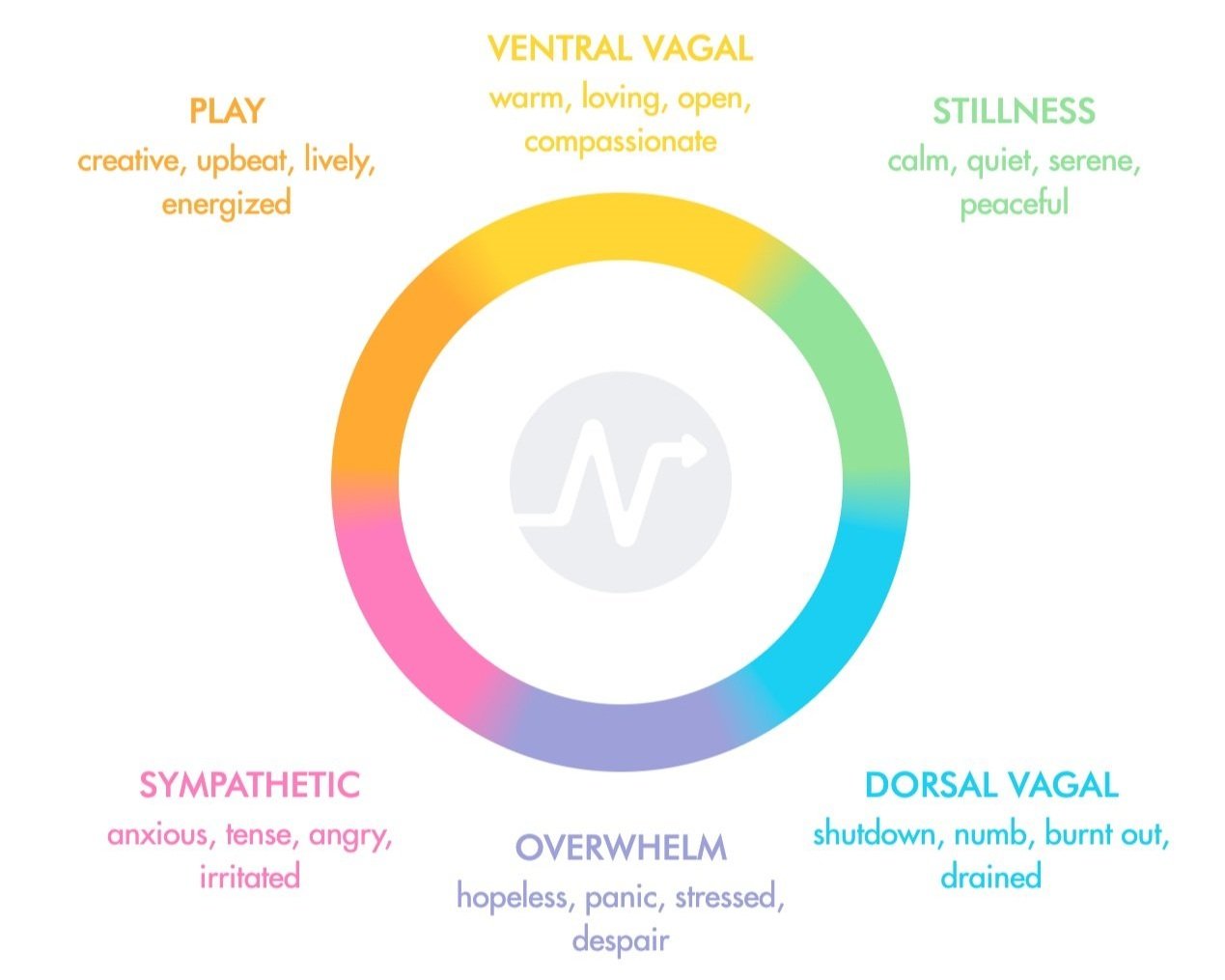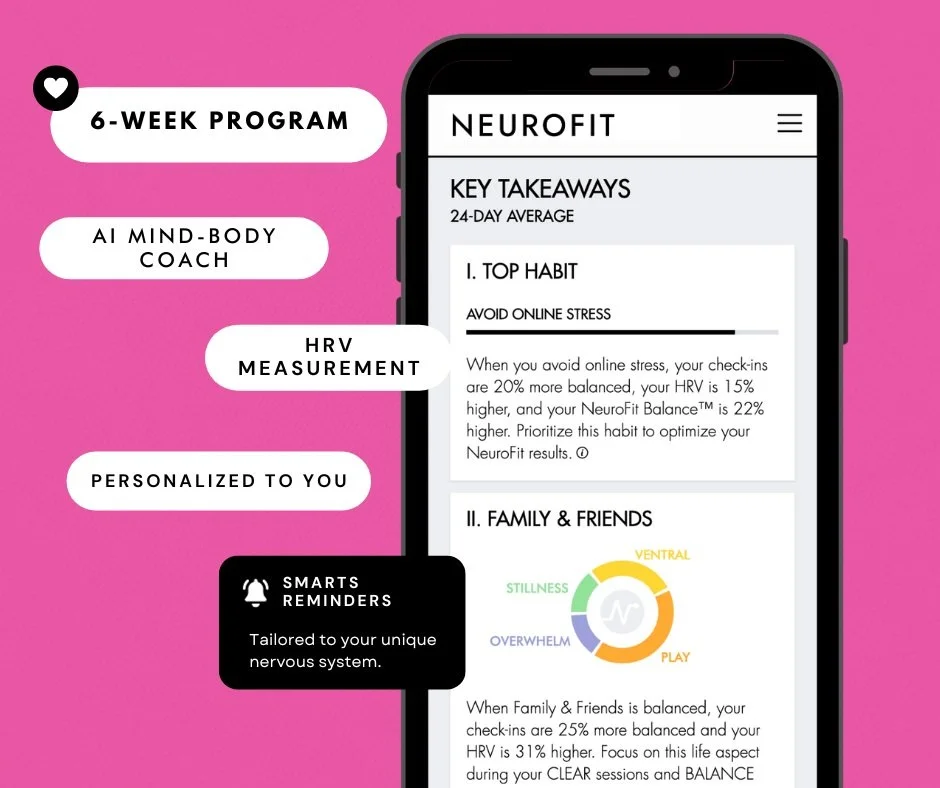Self-Care: An Essential Practice for Nervous System Regulation
Self-care is far more than just a trending topic or occasional luxury to partake in, it is an essential practice that directly impacts our well-being and quality of life.
The Role of Self-Care in Nervous System Regulation
Before diving into the role of self-care, it’s helpful to understand the nervous system and its functions. The nervous system, comprising the brain, spinal cord, and a network of nerves, acts as the body's command center. It regulates everything from our breathing and heart rate to our emotions and stress responses.
When the nervous system is balanced, our mental, emotional, and physical well-being is enhanced. A regulated nervous system supports better sleep, increased cognitive functioning and creativity, hormonal balance, improved digestive function, along with reduced stress and anxiety.
The Impact of Stress on the Nervous System
The autonomic nervous system is composed of the sympathetic nervous system (responsible for the 'fight or flight' response) and the parasympathetic nervous system (which promotes 'rest and digest' activities).
In our daily lives, we encounter various stressors that activate the sympathetic nervous system. The sympathetic state keeps our body on “high alert” and while this response is necessary for survival, constant activation can lead to a state of chronic stress, dysregulation, and eventual burnout.
The ability to move flexibly from the sympathetic to parasympathetic states is essential for greater health and well-being. This is where self-care plays a pivotal role.
Essential elements of nervous system regulation
Self-care addresses the crucial elements of safety and relaxation within the nervous system. We know from polyvagal theory, that the body undergoes restorative processes once safety is perceived.
Self-care looks different for everyone and can vary day-to-day. While the goal should always be to create balance within the nervous system, what does that really mean?
Let’s take a look at the three nervous system states you’ll want to engage during your self-care routine.
Self-care and the state of your nervous system state
When taking into account what nervous system states best coincide with self-care practices, we know this means engaging the parasympathetic nervous system. This includes the Ventral Vagal State, Play State, and Stillness State.
The Ventral Vagal State
The Ventral Vagal State is responsible for the body's "rest and digest" response. This circuit is activated when the body is safe and relaxed. When activated, the heart rate slows, blood pressure decreases, and the digestive system is able to function properly. Ventral vagal also supports social engagement behaviors.
The Play State
The Play State is a combination of the Ventral Vagal State and the Sympathetic State. By coupling ventral vagal’s safety with the high energy of sympathetic, the nervous system learns to be activated without feeling threatened or responding with aggression. Instead of dropping straight from rest-and-digest into a stress response, play teaches the nervous system to remain balanced, open, and creative, even when we may perceive some stress.
The Stillness State
The Stillness State combines Ventral Vagal’s openness with Dorsal Vagal’s immobilization. Similar to how Play builds resistance to the Sympathetic State, Stillness builds nervous system resistance to Dorsal Vagal – the body's natural shutdown or freeze response to excessive stress. Stillness helps us learn to remain calm under stress, and increasing our familiarity with it also makes it easier to fall asleep at night as many of the same neural pathways are used.
Creating a Holistic Self-Care Routine
Keeping these 3 nervous system states in mind will help you adopt a more holistic self-care routine. Identifying what nervous state you are in currently is the first step and finding the right antidote to stress becomes easier from there. Overtime, it even becomes easier to recognize your unique energy type or “go-to-response” to stress.
Within the NEUROFIT App, we support you through this entire process with daily check-ins of your nervous system state, HRV readings, a provided Balance Score (TM), and recommended somatic exercises to release stress and optimize overall health and well-being.
The good news? You can balance your nervous system with the NEUROFIT App in as little as 5 minutes a day!
A Somatic Approach to Self-Care
Because the majority of stress symptoms take place in the body, it makes sense to approach our self-care with a somatic approach. Utilizing self-care practices that address stress from this deeper level will ultimately create a more resilient nervous system and the ability to “spring back” more quickly from stressful experiences.
10 Self-care practices to effectively support nervous system regulation
1. Regular Physical Activity — Exercise releases endorphins, which are natural mood lifters. Activities like jogging, swimming, or even a brisk walk can help in reducing the stress hormone levels and stimulate the production of neurotransmitters that promote well-being.
2. Adequate Sleep — Ensuring sufficient and quality sleep is critical for nervous system health. Sleep helps in the regulation of stress hormones and supports cognitive functions including mood and judgement.
3. Healthy Diet — Consuming a balanced diet rich in vitamins, minerals, and antioxidants supports brain health and overall nervous system functioning. Foods like leafy greens, nuts, berries, and fatty fish are particularly beneficial.
4. Social Connections — Engaging in positive social interactions boosts the production of oxytocin, a hormone that promotes feelings of well-being and reduces stress responses.
5. Deep Breathing Exercises — Deep, controlled breathing activates the parasympathetic nervous system, promoting relaxation and reduced stress. Within the NEUROFIT App, this would include box-breathing or eye-press breathing.
6. Daily Stillness — Practicing stillness for a few minutes each day through meditation or heart-focused breathing helps in anchoring the mind to the present moment, reducing the overactivity of the stress response, and promoting a sense of calm and balance.
7. Hobbies and Creative Activities — Engaging in activities that you enjoy, such as painting, playing a musical instrument, or gardening, can be a form of mindfulness and a great way to relax and recharge.
8. Journaling — Writing down thoughts and feelings can be a therapeutic way to process emotions, reduce stress, and gain perspective, helping in nervous system regulation. If you want to take things a step further, check in with our AI-Coach, CLEAR inside the NEUROFIT App and get to the root cause of your stress within minutes.
9. Daily Play — Play teaches the nervous system to remain balanced, open, and creative, even some stress is present. Play also helps us tap into creativity, increases resilience to stress, and improves emotional regulation.
10. Somatic Exercises — Somatic exercises focus on mind-body connection and releasing physical tension that accumulates in the body due to stored stress and emotions. They are designed to counteract the effects of the sympathetic nervous system's 'fight or flight' response, leading to a more balanced nervous system.
Image: Unsplash
Conclusion
Prioritizing self-care is essential for maintaining a balanced nervous system. By actively engaging in self-care practices, we not only enhance our ability to cope with daily stressors but also contribute positively to our overall health and well-being. Remember, self-care is not a one-size-fits-all approach; it's about finding what works for you and making it a part of your life.
Curious about the state of your nervous system? Take our 2-minute Nervous System Regulation Quiz and receive tailored next steps for regulating your nervous system.




